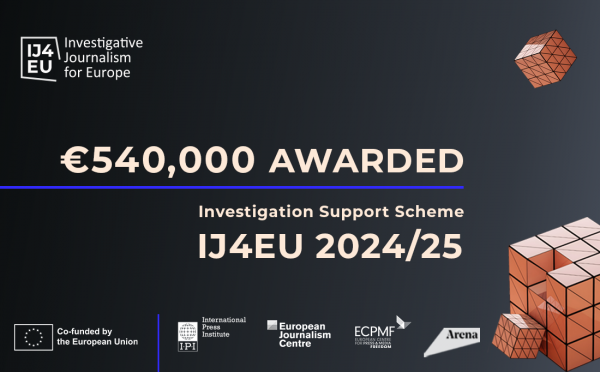Two-years ago today, a self-professed Turkish nationalist-extremist killed renowned journalist Hrant Dink in an Istanbul street. Prior to the killing, the courts had found Dink guilty of insulting “Turkishness,” and therefore of breaching the country’s infamous Article 301.
Turkey’s leaders admitted that problems exist with the highly contentious law in the wake of Dink’s murder. Two years on, however, Article 301 remains a threat to free expression.
“Our thoughts are with the family and friends of Hrant Dink on this sad day,” said IPI Director David Dadge. “The murder of journalists must be stamped out, and to achieve this, laws such as Article 301 – which may provide perverse justification for those seeking to silence critical voices – must be removed. With Turkish and the EU leaders meeting in Brussels this week, IPI call’s on the unresolved issue of Article 301 to be revisited, for its danger to be recognised, and for it to be repealed.”
At around midday on 19 January 2007, the 53-year-old editor was approaching the offices of his newspaper, the weekly Agos, when a young man approached him and shot Dink twice in the head and once in the neck at point-blank range. Dink, who died at the scene, had only recently lost an appeal against a six-month suspended sentence for referring to the massacre of Armenians in the Ottoman Empire from 1915 onwards as an act of “genocide.” Such statements are deemed an insult to “Turkishness” and therefore a breach of Article 301.
Dink’s 17-year-old killer, who confessed to the murder, is standing trial with seven other suspects for what appears to have been an attack orchestrated and executed by a group of ultranationalists.
Dink’s murder sparked public outrage, and Turkish President Abdullah Gul publicly conceded that Article 301 should be eased. The law was amended in April 2008, but campaigners for freedom of expression called for it to be scrapped outright. Under the changes, the maximum sentence for breaching Article 301 was reduced from three to two years in prison; each prosecution must henceforth be approved by the justice minister; and the crime of “insult against Turkishness” was merely changed to “insult against the Turkish nation.”
“Even in its reformed state, Article 301 continues to pose a threat to journalists, as it did at the time of Dink’s murder,” Dadge said.
Dink was posthumously awarded IPI’s World Press Freedom Hero award in 2007.
Turkish Prime Minister Recep Tayyip Erdogan is meeting with European Union leaders in Brussels this week in an effort to jump-start Turkey’s stalled talks on EU accession. The country’s human rights record is likely to be on the agenda for discussion. Meetings were scheduled with EU leaders, including European Commission President José Manuel Barroso and European Parliament President Hans-Gert Pottering.
EU officials have welcomed the changes to Article 301, calling it an “acceptable compromise,” while urging Turkey to carry out equivalent reform to its remaining criminal defamation legislation.
Relations have improved dramatically in recent months, including an unprecedented meeting between the nations’ presidents in September, though Armenia continues to insist that normalisation of ties will not take place without an acknowledgement of genocide.
Additional information:
Timothy Spence
Press and Communications Manager
International Press Institute
E-mail: tspence(at)freemedia.at
Tel: +43 1 512 90 11
Colin Peters
Press Freedom Adviser (Europe)
International Press Institute
E-mail: cpeters(at)freemedia.at
Tel: +43 1 512 90 11
Related:


